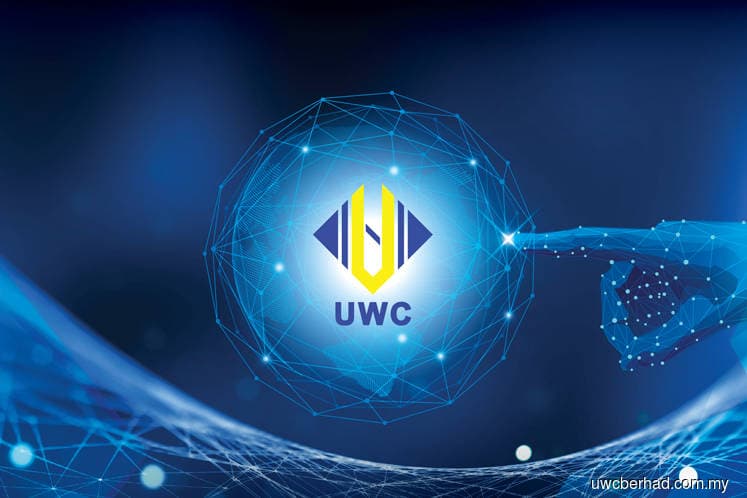
KUALA LUMPUR (July 11): UWC Bhd's share price rose as much as 10 sen or 7% to RM1.50 so far today on continued demand for the stock after the company's listing yesterday on the Main Market of Bursa Malaysia.
At 10:33am today, shares of the integrated engineering support services provider pared gains at RM1.48 with some 48 million units traded. UWC was Bursa's top-active stock.
Yesterday, UWC shares opened at RM1.10, representing a 34% premium to its initial public offering price of 82 sen, the company said in a statement. UWC's share price closed at its intraday high of RM1.40 after the stock rose 58 sen or 71%.
At current levels, UWC's share price has surpassed analysts' fair value (FV) for the stock.
Hong Leong Investment Bank Bhd analysts Tan J Young wrote in a note yesterday that Hong Leong initiated coverage on UWC shares with an FV of RM1.11 and buy call.
"In line with the valuation methodology for all tech companies under coverage, we use one-year forward (calendar year (CY)) PE (price-to-earnings) valuation to derive the FV of UWC. As such, we arrive with the FV of RM1.11, pegged to 13x of CY20 EPS, based on the simple average global peers' valuation," Tan said.
UWC said in a statement Hong Leong is the principal adviser, underwriter and placement agent for UWC's listing while WYNCORP Advisory Sdn Bhd is the corporate finance adviser for the exercise.
Earlier, Public Investment Bank Bhd's research team wrote in a note dated June 28 that Public Investment derived an FV of 96 sen for UWC shares based on 13 times PE multiple to UWC's estimated EPS of 7.4 sen in financial year ending July 31, 2020.
"UWC's growth will be focused on expansion of production capacity and improvement in production efficiency, expansion of service offerings to plating surface treatment services, and automation of some of the repetitive and laborious tasks in its production processes.
"Key downside risks, among others, include competition from other industry players, fluctuations in foreign exchange rate, fluctuations in the prices of raw materials, dependency on major customers, and absence of long-term contracts," Public Investment's research team said.